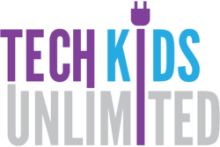By Beth Rosenberg, Executive Director of Tech Kids Unlimited
The recently published article “Employees With Autism Find New Ways to Navigate the Workplace” from The New York Times, highlights the strides made in accommodating neurodivergent individuals in the workplace who have been diagnosed with autism later in life. While this is commendable, it only scratches the surface of a broader, more pressing issue: the high unemployment rates among young people diagnosed with autism. The article leaves out that a majority of the autistic population don’t even have jobs. According to Autism Society 85% of people with autism are unemployed or underemployed.
While companies’ efforts to create more inclusive practices is a step in the right direction, there’s more that needs to be done. For hiring and employment initiatives to be genuinely impactful, they must be complemented by: 1) structured programs for upskilling autistic youth and 2) ongoing social-emotional learning for these young people to successfully navigate the complexities of the workplace. We must ensure that the next generation of autistic individuals is not left behind.
In addition to 21st-century technical skills, autistic individuals must also be equipped with the necessary social-emotional skills to thrive in a professional setting. How do they learn these skills? The ten-year-old NYC non-profit I founded and run, Tech Kids Unlimited, focuses on both technical skills and growth through social-emotional learning. We provide neurodiverse youth from ages 10 to 25 with the support needed to learn tech skills while emphasizing communication, teamwork, and emotional resilience, the competencies required to thrive in today’s collaborative workplace. We must bridge the gap between education and employment to prepare young autistic individuals for sustainable careers.
